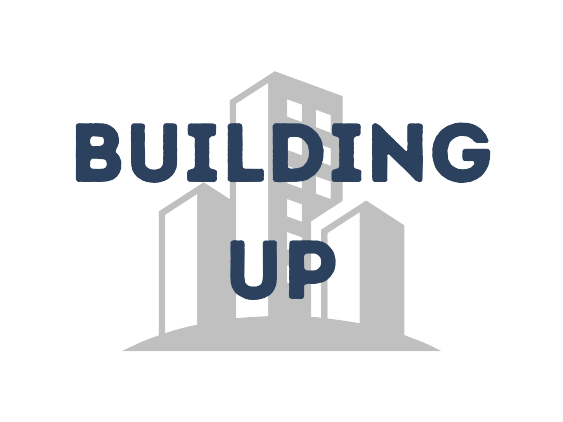Adaptability in Strong Teams
Self-Assessment: Adaptability in Strong Teams
Please take a few moments to answer the following self-reflection questions. Where can you identify opportunities for personal growth in your leadership?
How well does my team adjust when plans or priorities change?
Do I encourage my team to find solutions, or do I expect things to stay the same?
When challenges arise, do I focus on solutions, or do I get stuck on what went wrong?
How do I respond to feedback that suggests a new approach or change in routine?
Do I support teammates when they need help adjusting to new situations?
Does my team handle stress and unexpected challenges with confidence?
How do I contribute to keeping the team focused and motivated when faced with obstacles?
Am I open to learning new ways of working to improve efficiency and performance?
Remember, this self-assessment is just a starting point for understanding Adaptability in Strong Teams as a leader. It's essential to reflect on your responses and actively work on areas where improvement is needed.
“None of us is as smart as all of us.”
Every team faces challenges. No job site, project, or workday ever goes exactly as planned. Unexpected changes, shifting priorities, and last-minute obstacles are part of the job. The difference between an average team and a great team is how they handle the unexpected. Skilled teams succeed not just because of their abilities, but because they know how to adjust, stay focused, and keep moving forward.
Adaptable teams stay productive, solve problems efficiently, and support one another when things do not go as planned. Instead of getting stuck on setbacks, they focus on solutions and find ways to move forward. Teams that resist change, on the other hand, can become frustrated, disorganized, and less effective.
But being adaptable does not mean simply going along with every change. It is about responding with confidence, making smart decisions, and keeping the team moving forward. Strong teams communicate openly, stay flexible in their approach, and rely on one another to get the job done.
Adaptability is more than just reacting to change—it is about seeing challenges as opportunities to improve. The most resilient teams do not just adjust to obstacles; they use them to refine their approach, expand their skills, and strengthen their problem-solving abilities. Rather than getting stuck in what worked before, they embrace continuous learning, knowing that flexibility is key to long-term success.
Adaptability is one of the greatest strengths a team can have. No matter how skilled or experienced they are, their ability to adjust and keep moving forward determines their long-term success.
Picture two teams working on a job site when a key shipment is delayed. The first team panics, points fingers, and waits for a solution to appear. The second team quickly gathers, discusses alternatives, and adjusts their schedule to stay productive. One team loses time. The other keeps moving forward. What makes the difference? Adaptability.
The strongest teams do not break under pressure. They focus on solutions instead of setbacks, support one another, and stay productive even when circumstances change. When challenges arise, these teams communicate openly, make necessary adjustments, and look for ways to improve.
A leader’s actions shape how a team responds to uncertainty. Leaders who stay calm, promote teamwork, and encourage flexibility help their teams remain steady and effective. They set the tone for how challenges are handled, directly impacting morale, communication, and problem-solving.
Signs of a Strong, Adaptable Team:
Team members focus on solutions rather than problems.
People support and encourage one another during difficult times.
The team is flexible and willing to adjust when circumstances change.
Setbacks are seen as opportunities to improve rather than failures.
Why Adaptability Matters:
Every team will face setbacks, changes, and unexpected difficulties. Teams that are not prepared for challenges often struggle with:
Low morale due to stress and frustration.
Poor communication when uncertainty causes confusion.
Reduced productivity as motivation decreases.
On the other hand, teams that embrace adaptability:
Stay engaged and focused even during uncertainty.
Support each other and problem-solve effectively.
Adjust quickly to new challenges without losing momentum.
At the core of adaptability is a growth mindset. Teams that see challenges as learning opportunities rather than obstacles become stronger, more resilient, and better prepared for whatever comes next.
“Many ideas grow better when transplanted into another mind than the one where they sprang up.”
Strong teams do not just react to change—they anticipate it, adapt when needed, and find ways to improve. Here are some best practices to build a team that stays strong through any challenge:
Keep the Team Focused on Solutions: Challenges are inevitable, but how a team responds determines its success. The strongest teams focus on what they can control, shifting their mindset toward solutions rather than problems.
Shift the focus from what went wrong to what can be done.
Encourage brainstorming and collective problem-solving rather than assigning blame.
Remind the team of past successes and how they overcame challenges before.
Strengthen Adaptability by Embracing Change: Change is a constant in any workplace. Instead of seeing it as a disruption, adaptable teams treat it as an opportunity to improve, refine their processes, and discover better ways to work together.
Promote a growth mindset, where change is seen as an opportunity, not a problem.
Encourage learning from mistakes instead of fearing them.
Support team members through changes by providing clear communication and guidance.
Maintain Stability Through Clear Communication: Uncertainty can create frustration, but clear communication provides stability. Keeping the team informed about changes, challenges, and expectations ensures that everyone stays aligned and focused.
Provide regular updates so the team knows what is happening and why.
Be transparent about challenges, expectations, and adjustments.
Encourage the team to ask questions and share concerns.
Foster a Strong Support System Within Teams: No one succeeds alone. Teams that support and rely on one another build trust, reduce stress, and strengthen collaboration, making them more resilient in the face of challenges.
Encourage team members to offer support and check in on each other.
Create a work environment where asking for help is seen as a strength, not a weakness.
Build relationships that strengthen teamwork and accountability.
Develop Problem-Solving Skills to Handle Uncertainty: When uncertainty arises, problem-solving becomes a team’s greatest asset. Developing the ability to break challenges into smaller steps, think creatively, and learn from past experiences helps teams respond with confidence and efficiency.
Break large challenges into smaller, manageable steps.
Encourage different perspectives and ideas before making decisions.
Use past experiences as learning tools for future problem-solving.
The strongest teams are not the ones that avoid challenges. They are the ones that face them, learn from them, and keep moving forward. Change is inevitable, but teams that embrace it with confidence turn obstacles into opportunities.
At MSS, adaptability keeps projects moving, teams working efficiently, and challenges from becoming roadblocks. In a fast paced environment, teams that stay flexible and solutions focused do not just react. They anticipate, adjust, and keep momentum going.
While adaptability helps teams succeed in the moment, long term success requires commitment and accountability. In the next session, Sustaining Team Success, we will explore how teams can stay engaged, effective, and focused on long term growth.
Reflection Questions:
Do I tend to resist or embrace change within my team?
How can I help my team adjust when unexpected challenges arise?
What is one example of a time my team successfully adapted to a challenge?
How do I personally handle setbacks? Do I focus on solutions or get stuck on problems?
To push your understanding of Adaptability in Strong Teams to the next level, explore these valuable resources. They’ll help expand your skills and provide essential tools for building strong leadership.
Ted Lasso: Halftime team talk (2:16)
Ready for Change: How to Build More Adaptable and Agile Teams
Why Your Team Should Embrace Adaptability When Facing Disruption








